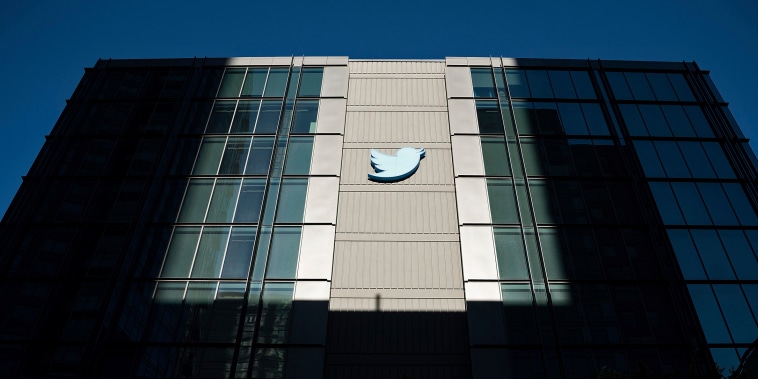
Advertisers pull back from Twitter amid ‘uncertainty’ about Elon Musk’s strategy
Some advertisers are pulling back from buying promotional placements on Twitter as they determine what the site will look like under new owner Elon Musk.
In a statement to NBC News, Omnicom, the world’s second-largest agency by revenue, said that even as it remained in close contact with Twitter to determine any changes in the site’s operations, ‘uncertainty of this kind raises concerns among advertisers.’ The company said it would continue to provide guidance to clients so they can make informed decisions.
Meanwhile, a source familiar with the thinking of Interpublic Group’s Mediabrand advertising agency unit said it had advised its clients to halt spending on Twitter for at least one week to assess any new changes in the site’s direction. A spokesperson for Interpublic declined to comment.
Musk confirmed the impact of the pullback in a tweet Friday, saying “Twitter has had a massive drop in revenue,’ and blaming what he called ‘activist groups’ who he said were ‘pressuring advertisers.’
He added: ‘Extremely messed up! They’re trying to destroy free speech in America.”
There is no evidence that the advertisers are responding en masse to activist groups, and Musk’s own tweet was later given additional context by users who linked to news articles that suggested advertisers were acting independently.
On Friday, a group comprised of 60 civil rights and civil society groups, including the NAACP and the Anti-Defamation League, launched the website, StopToxicTwitter.com, urging major brands to halt advertising on Twitter. As of this writing, there was not yet evidence that the companies or advertising groups had acted in response to that campaign.
It is not clear what, if any, changes Musk and his team have made to the platform since he closed on his $44 billion deal to take the company private last week, though at least one study suggested hate speech on the platform increased soon after the takeover. Musk himself posted, then deleted, a debunked, anti-LGBTQ conspiracy theory about the attack on Paul Pelosi, the husband of House Speaker Nancy Pelosi just days after the deal closed.
When asked how brands will position themselves in this opening chapter of Twitter’s new era, Wedbush Securities managing director, Dan Ives, told NBC News that advertisers simply do not want to be associated with controversy.
‘If it becomes an essential street fight around hate speech, advertisers are going to run for the hills,’ Ives said.
‘That fundamentally is the problem. You’re trying to bring advertisers back on while loosening content moderation. Those go exactly against each other. And no advertiser is going to jump in the deep end until they know the rules of the game. And Musk goes to the beat of a different drummer.’
